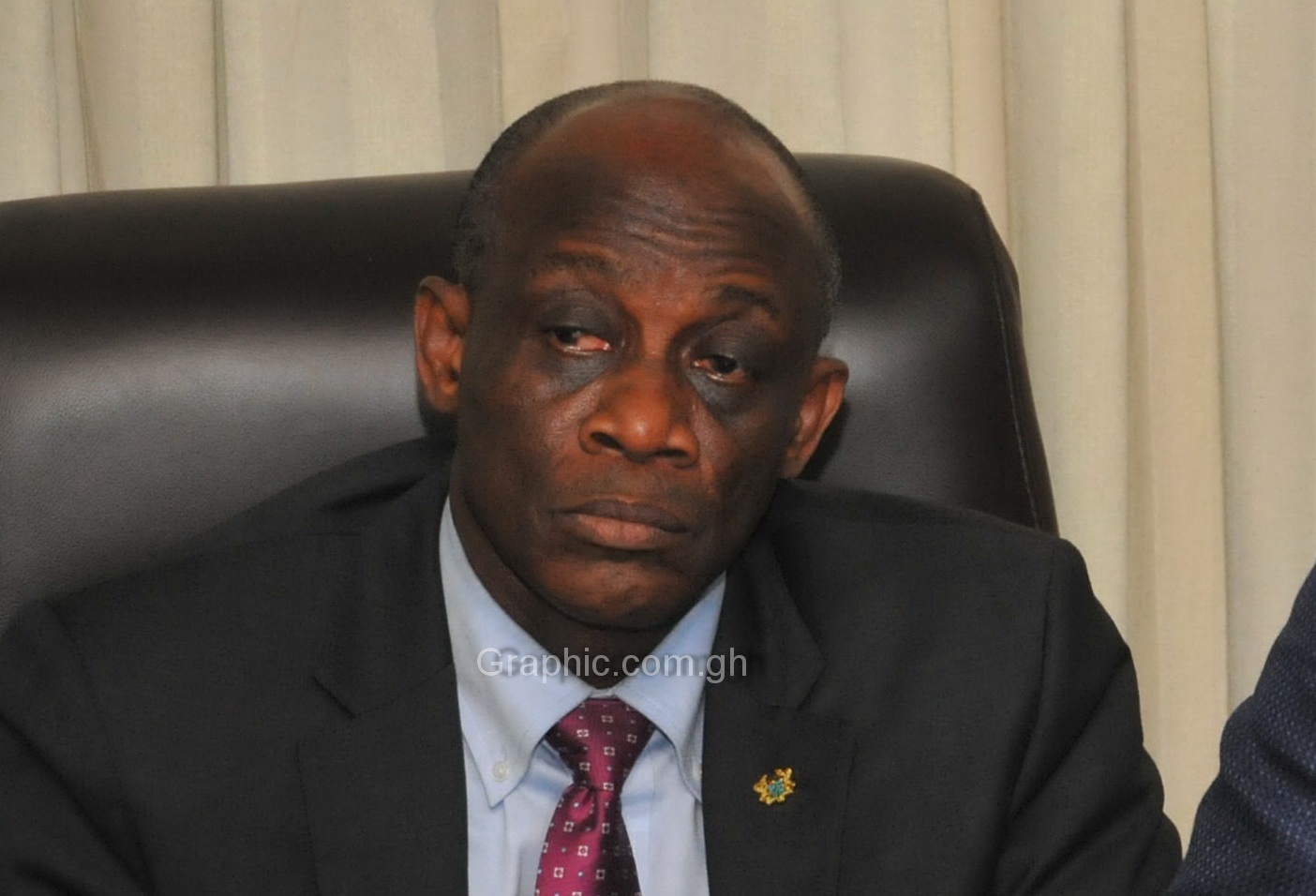
Terkper banks hopes on TEN, Sankofa
The country’s debt stock which is currently about GH¢105 billion is expected to decline in 2017, with the economy returning to growth, the Minister for Finance, Mr Seth Terkper, has said.
He said that would be possible through the operations of the TEN Field which started producing oil in August, this year, together with the Sankofa Field which is expected to start production in August 2017.
“The country is returning to growth and the denominator which is the debt to GDP ratio will increase and with the measures we are taking on the numerator, which is the debt itself, it means the denominator will be helping our debt effort and we, therefore, expect our debt to go down from 2017,” he stated.
The minister said this during an interaction with the media after he presented to Parliament the expenditure in advance of appropriation January-March 2017.
Mr Terkper said the country’s fiscal consolidation was bearing fruits as the gap between revenues and expenditures was narrowing.
He added that the reduction in the deficit, with the primary balance expected to be positive in 2016, was an affirmation that the economy had made tremendous improvements and would soon experience a turnaround.
Ghana’s debt
Ghana’s total public debt stock reached GH¢105.1 billion at the end of May 2016, representing 66.4 per cent of Gross Domestic Product (GDP) as against GH¢104.5 billion at the end of April 2016, representing 66.3 per cent of GDP.
Out of the total debt stock, debt incurred internally was GH¢43.2 billion, representing 27.3 per cent of GDP, while the external debt stock stood at GH¢61.9 billion, representing 39.1 per cent of GDP.
Since January, this year, the country's debt has been increasing, crossing GH¢1 billion month on month.
In January, the debt was GH¢101.1 billion and increased to GH¢102.3 billion in February. In March, it rose to GH¢103.1 billion.
TEN Field Project
The Tweneboa, Enyera and Ntomme (TEN) Oil field, which started operating in August this year, is expected to produce between 20,000 to 23,000 barrels of oil per day.
The Project is a joint venture led by Tullow Oil with a stake of 47.185 per cent, with the other partners, Kosmos Energy, Anadarko Petroleum Corporation, Ghana National Petroleum Corporation and Petro SA, having a stake of 17 per cent, 17 per cent, 15 per cent and 3.815 per cent, respectively.
The project derives its name from the three fields, Tweneboa, Enyenra and Ntomme (TEN), which lie around 60 kilometres off the coast of the Western Region, Ghana.
TEN is expected to produce about 300 million barrels of oil equivalent (mmboe) over a 20 years period, 80 per cent of which is oil and 20 per cent gas.
The field will produce 80,000 barrels of oil and 180mm scf of gas per day when it reaches full production.
Sankofa project
The Sankofa-Gye Nyame field in the Tano Basin of the West Cape Three Points on the other hand is on track to deliver first oil in August 2017 and first gas in February 2018 to augment thermal power generation that will ensure sustainable electricity production.
It is expected to deliver an additional 30,000 barrels per day of oil and 180 million cubic feet (5.07 million cubic metres) per day of gas to Ghana.
Gas from the project is expected to help generate 1,100 MW of additional electricity and once on stream, it will produce enough gas to increase the country’s electricity supply by 50 per cent.
Parliament approves first quarter budget
Parliament has approved GH¢10.99 billion to finance critical government expenditure in the first quarter of 2017.
This followed a request by the Minister of Finance, Mr Seth Terkper, for Parliament to approve expenditure in advance of appropriation from January to March, 2017.
The provision is to cater for estimates of the first quarter expenditure on essential and other statutory payments.
The expenditure categories cover compensation of employees, goods and services, capital expenditure, interest payment, grants to other government units, non-road arrears, tax refunds and amortisation.
By the approval, the government is authorised to withdraw money from the Consolidated Fund and other public funds to meet its urgent and statutory expenses for the first quarter of 2017 pending the approval of an Appropriation Act for the 2017 financial year.
During the first quarter, the ministry is projected to collect a total revenue of GH¢8.9 billion for the first quarter of 2017, thereby creating a deficit of GH¢2 billion which is expected to be financed through both domestic and external borrowing.
Minority raises issue
The MP for New Juaben South, Dr Mark Assibey-Yeboah, expressed concern about the excessive borrowing by government..
He indicated that of the about GH¢10.99 billion request, 29 per cent was going into interest payments, amortisation of loans and non-road arrears.
Dr Assibey-Yeboah wondered why interest payments was higher than the budget for capital expenditure in the first quarter. which was pegged at GH¢1.2 billion.
Out of the amount which is being requested, about GH¢1.9 billion will be used for interest payments, GH¢773 million on amortisation and GH¢518 million on non-road arrears.